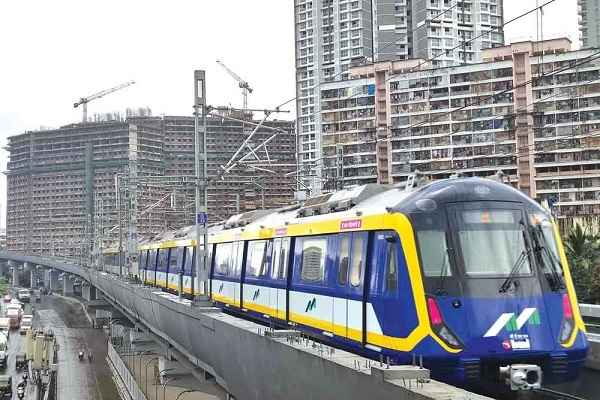The Mumbai Metropolitan Region Development Authority (MMRDA) is grappling with significant obstacles in acquiring the necessary land for the expansion of Metro 6 beyond the Kanjurmarg depot. This expansion is crucial for the seamless connectivity of the city’s metro network.
To facilitate this expansion, the MMRDA must secure over 3,000 square metres of railway land, essential for constructing stations and installing girders along the route. Despite ongoing efforts, substantial challenges remain at key locations such as Jogeshwari, Powai (near IIT Bombay), Kanjurmarg, Eastern Express Highway (EEH), and Saki Vihar.
A critical aspect of the project involves obtaining forest clearance for a 1,798-square-metre plot, expected by July 2024. An MMRDA official commented on the progress, stating, “All land acquisition discussions are at an advanced stage.” This includes the ongoing pursuit of private land acquisition at Ghaswala Compound in Jogeshwari West and the relocation of high-tension power lines at Saki Vihar station.
Further complicating the project, the MMRDA needs land from MTNL for the construction of the IIT station, while proposals are still pending for land required at Kanjurmarg station. Additional land is also needed for activities related to the construction of the Kanjurmarg Depot, which began in April 2023. This construction project, managed by an approved contractor, encompasses various components such as boundary walls, workshops, and stabling lines, with a budget allocation of Rs 509 crore.
The agency has also laid out plans to install girders over railway lines, with final design approvals anticipated by October for subsequent implementation. This is a critical step in ensuring the infrastructural integrity and safety of the elevated line. The Metro 6 line, spanning 16 kilometres, is designed as an elevated corridor that will traverse the Jogeshwari-Vikhroli Link Road. This line aims to connect Vikhroli to Lokhandwala, providing a vital link that intersects both the Central and Western Railway tracks.
Despite the forward momentum, the challenges in land acquisition reflect broader systemic issues faced by urban infrastructure projects in India. The complexities of negotiating with multiple stakeholders, including private landowners and various governmental bodies, often lead to delays and escalations in project costs.
MMRDA’s proactive measures, such as pursuing forest clearances and negotiating private land deals, underscore the authority’s commitment to overcoming these hurdles. However, the success of these initiatives depends on the collaborative efforts of all involved parties and the efficient execution of the planned strategies. The public’s cooperation is also pivotal, as MMRDA has urged residents and property owners to support the project by facilitating the surveyors’ access to required data. The successful expansion of Metro 6 is not only a testament to MMRDA’s planning and execution capabilities but also a significant step towards enhancing Mumbai’s urban transit infrastructure, ultimately benefiting millions of commuters in the metropolis.


